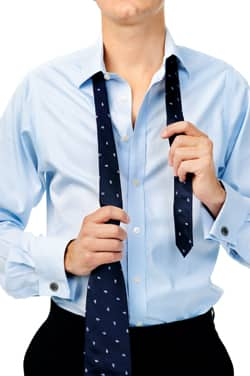Etiquette: Dress right for work!
Photograph: Shutter Stock |
| Many corporates in India offer felxibilty to wear Western or ethnic attire. |
THE apparel oft proclaims the man, said William Shakespeare. In the 16th century Shakespearean era, clothes were given much thought and importance. Five centuries later, not much has changed. Dressing aptly for an interview or work can be mastered with attentiveness and care. The result seldom goes unnoticed.
Company culture sets the tone
While torn jeans were considered a style statement in college, it’s a disaster to don them for your interview, even though different sectors and companies have varying perception on dress codes. Some have a written policy, while others follow unspoken norms. Hence, carefully selecting an outfit for an interview is the sensible thing to do.
Formals are the preferred choice in corporate companies, while in other sectors the dress code can vary from semi-casual to downright casual. In the case of Hector Beverages, which markets an energy drink, a suit and tie is considered to be overdressed for an interview. “It depends on the DNA of the company. When we recruit candidates from colleges, we stress on wearing something comfortable but at the same time smart,” reveals HR manager Ujwala Misra. An advertising, design or social media agency may tolerate creative professionals coming even in shorts!
Must-read:

- Office etiquette: Common bloopers & how to rectify!
- Workplace etiquette: Mind your manners in office!
Sending subtle messages
Attending an interview in neat, formal or semi-formal attire (depending on the sector), can subtly communicate an attentiveness towards work. Some veterans in the corporate world feel that it can convey a level of seriousness and discipline, while informal attire could come across as having a casual attitude. Smriti Singh, HR Head of Candid Marketing in Delhi, feels that a formal shirt with jeans or a knee-length formal skirt is a safe attire when going for interviews.
But if you are in doubt, call the HR of the company about what are acceptable standards before the interview date, she suggests. “These days you get lot of trendy office wear. Freshers should start working on their wardrobes and invest in casuals that could be worn in office. No college casuals,’ advises Vidya Bhat, who works in a BPO in Bangalore (view wardrobe guide box). Take your time in building up the wardrobe gradually.
| WARDROBE BASICS |
Women
|
Attention to detail
“While people who ask the technical questions may not notice what you are wearing during the interview, the HR personnel will observe how you are dressed among other things,” shares Kolkata-based lawyer Rukmini Das, who learnt it the hard way. During her search for her first job, she recalls that even though the interview went well, she was not selected. Her friends and seniors felt this was because she looked a little to plain and should have applied a little make-up to look presentable. On a regular day, Rukumini sports trousers and shirt with long or short sleeves and closed toe shoes or formal-looking salwar kameez with sandals.
Overdressing for the job!
Divya Renjan, a senior public relations consultant from Bangalore, says that a candidate once arrived for the interview dressed in with too much make up. That candidate was not called again. Moral of the story is that since an interviewer may see you only once before making up his or her mind, creating a good impression is of utmost importance. It’s safer to skip loud colours and too much makeup, especially when you are a fresher.
|
Western vs Indian
Many corporate companies in India are flexible in their formal attire and do not insist on employees wearing suits, trousers and shirt or formal skirts. However, if you are comfortable in Indian formals, who is to say no? Women can opt for salwar kameez or churidars, or go for an Indo-western look with a fitted kurta and jeans. The latter applies to men too.
Ethnic dress is preferred in non-profit organisations, where you may mingle with underserved communities. Although, there is no restrictions on wearing western formals, men are usually clad in half sleeve shirts and pants or T-shirts and jeans. Women choose to wear saree, salwar suit, kurtas, leggings, T-shirt and jeans in the office. During field visits, it’s always salwar suits, states Arthur Thangaiah, Chairman and CEO, Sahaara Charitable Society.
Personal hygiene
This factor could prove to be the deal breaker for some interviews, if the next candidate is as smart as you. Mohan Ramnath, HR manager of IOS Relocations in Mumbai, says he takes note of small things like body odour and bad breath. “Business may be gained or lost even on such things as odour of smoking or onions and garlic breath. Foreign clients tend to abhor a foul odour from the mouth, body, even a stale odour emanating from excessive use of hair oil,” Ramnath explains.
Echoing a similar opinion, Smriti Singh narrates how she rejected a candidate whose shirt gave an impression that it had not been washed for days. “If the overall appearance is proper, we don’t place much importance whether the shoes are matching with the trousers,” rounds up Mohan.
Articles
Upcoming Exams
Application Date:15 October,2024 - 15 January,2025
Application Date:11 November,2024 - 08 April,2025